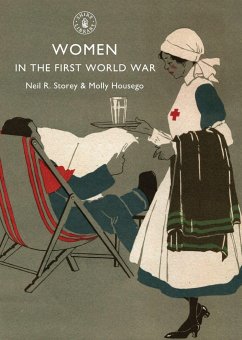While men marched off to war, the women enrolled as nurses and worked in munitions factories, and took on jobs formerly done by men. This looks at the realities and myths of the role of women in the war effort. Illustrated with archive photos.
The First World War brought about dramatic changes in the role of women in British society. Suffragettes gave up their militant protests to support the war effort, and from the moment war broke out women were ready to help. As increasing numbers of men left to serve overseas, their duties were taken over by women, who took jobs as postal workers, tram clippies, delivery drivers, land workers and others. Then there were the famous'Munitionettes', the women who worked long hours in ammunition and military hardware factories. Women also joined auxiliary military units, such as the Women's Army Auxiliary Corps, and acted as nurses near the front line. Told through historical documents, memoirs, photographs, uniforms and ephemera, the authors present a study of this turning point in British social history.
Hinweis: Dieser Artikel kann nur an eine deutsche Lieferadresse ausgeliefert werden.
The First World War brought about dramatic changes in the role of women in British society. Suffragettes gave up their militant protests to support the war effort, and from the moment war broke out women were ready to help. As increasing numbers of men left to serve overseas, their duties were taken over by women, who took jobs as postal workers, tram clippies, delivery drivers, land workers and others. Then there were the famous'Munitionettes', the women who worked long hours in ammunition and military hardware factories. Women also joined auxiliary military units, such as the Women's Army Auxiliary Corps, and acted as nurses near the front line. Told through historical documents, memoirs, photographs, uniforms and ephemera, the authors present a study of this turning point in British social history.
Hinweis: Dieser Artikel kann nur an eine deutsche Lieferadresse ausgeliefert werden.








